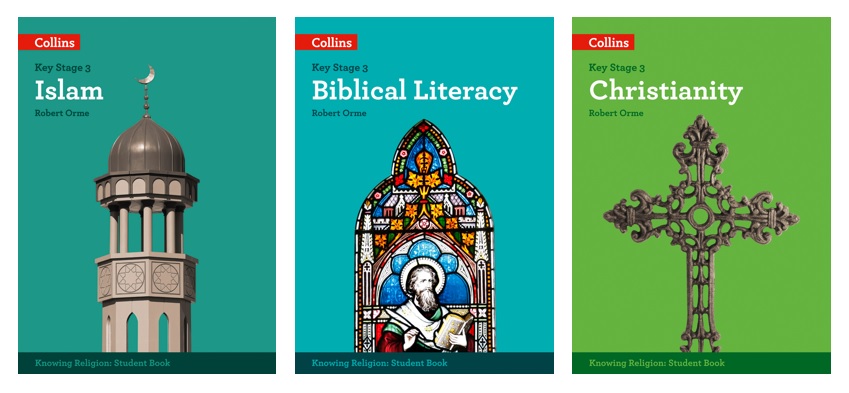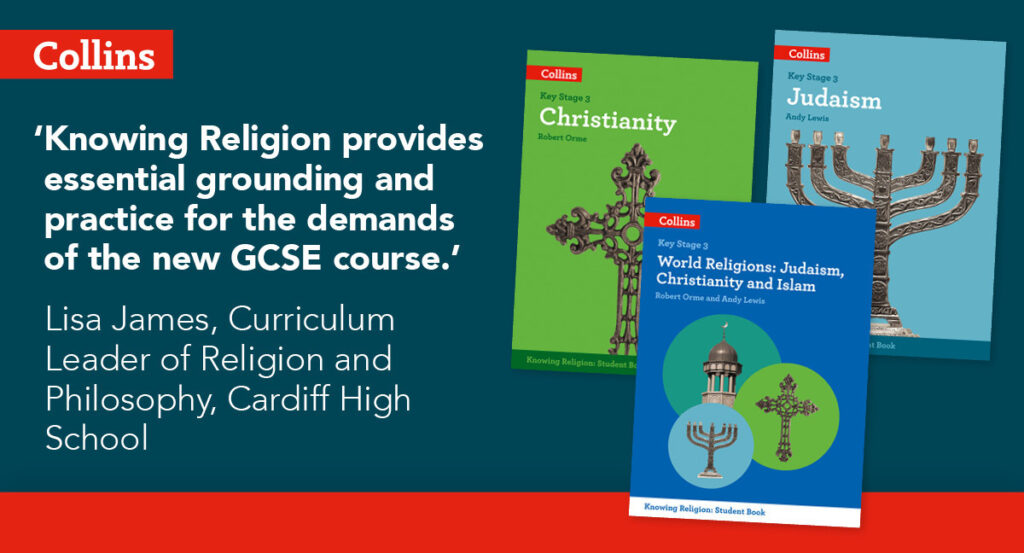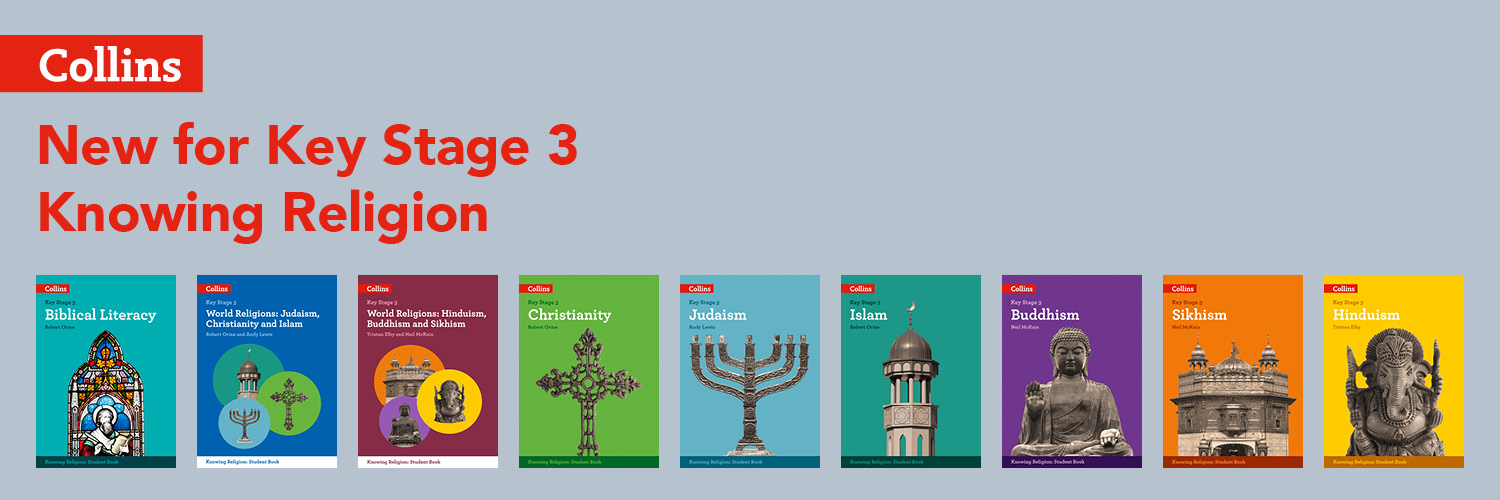Knowing Religion is a new series of nine Key Stage 3 RE textbooks out this month. In this blog, we discuss the books with Series Editor and author of Islam, Christianity and Biblical Literacy, Robert Orme.
 What was the idea behind writing the Knowing Religion series?
What was the idea behind writing the Knowing Religion series?
There is a strange paradox concerning religion in Britain. Although we are becoming more secular, religion is becoming more publically visible. I think that gaining an understanding of religion is as important and interesting as ever and so wanted to create textbooks that offer an engaging, accessible and challenging overview of different religions.
Why write new KS3 textbooks now?
With new GCSEs being examined from 2018, RE teachers are increasingly thinking about how to ensure they give their pupils the best possible grounding at KS3. The books were written with the new GCSEs very much in mind to support teachers redesigning their KS3 curriculum in light of the challenges they pose.
How can the books help teacher workload?
There is a logical progression to each book and they are intended to form the basis of a scheme of work. Each double page lays out the content to be covered in a lesson in a clear, accessible way and so saves teachers creating endless information sheets that don’t necessarily build on prior or relate to future learning. This time can instead be spent thinking about the most interesting and memorable ways to teach the content. Each double page includes questions for assessing pupils and there are suggested activities and in both the books and free online teacher guides. The books also provide clear progression across schemes of work by ensuring pupils’ cumulatively build knowledge upon prior learning. This means their learning is systematically revisited in later chapters enabling it to be both broadened and deepened.
How are the books structured and why?
Each book is split into two chapters. Generally, the first chapter explores how the religion started, spread and split with core beliefs and ideas tied into this historical narrative at relevant points. We took this approach to try to avoid presenting religions as static, uniform sets of belief and practice that seem to appear without any relationship to time or place.
The second chapters focus on how each religion impacts, and is impacted by, the modern world. Generally, these explore the internal debates and challenges faced by the religion in the modern world influence how it is practised. So in both parts of the book, providing context was really important. We have not shied away from difficult topics within each religion as these are often those which teachers want the most guidance on covering.
How else can the books benefit an RE department?
Having the content and key vocabulary for a lesson already written can support subject leaders in ensuring consistency in what is being taught across their department and that pupils are reading appropriate material in their lessons. The knowledge organisers which summarise key information at the end of each chapter ensure there is clarity about what should be remembered which aids teachers’ planning and pupils’ revision. Probably few RE teachers would see themselves as equally knowledgeable about all the major world religions and so these books can help support both trainee and more experienced teachers who are teaching a religion that is not their primary expertise. RE is also the subject most often taught by non-specialists in secondary schools. As such, they are a real support for non-specialists developing subject knowledge that can ensure broad and deep learning at KS3.
Who are these books for?
The books can certainly help an individual RE teacher planning one or a series of lessons, but they are primarily intended to be used by whole classes of pupils to read from as a class, do independent written work, and homework if pupils have their own copies. The books have been trialled with pupils of all abilities. Questions are differentiated and key vocabulary and concepts are carefully sequenced and systematically revisited in order to support pupils’ understanding and retention of information.
Take a closer look at Knowing Religion here: https://collins.co.uk/page/knowingreligion
Robert Orme





